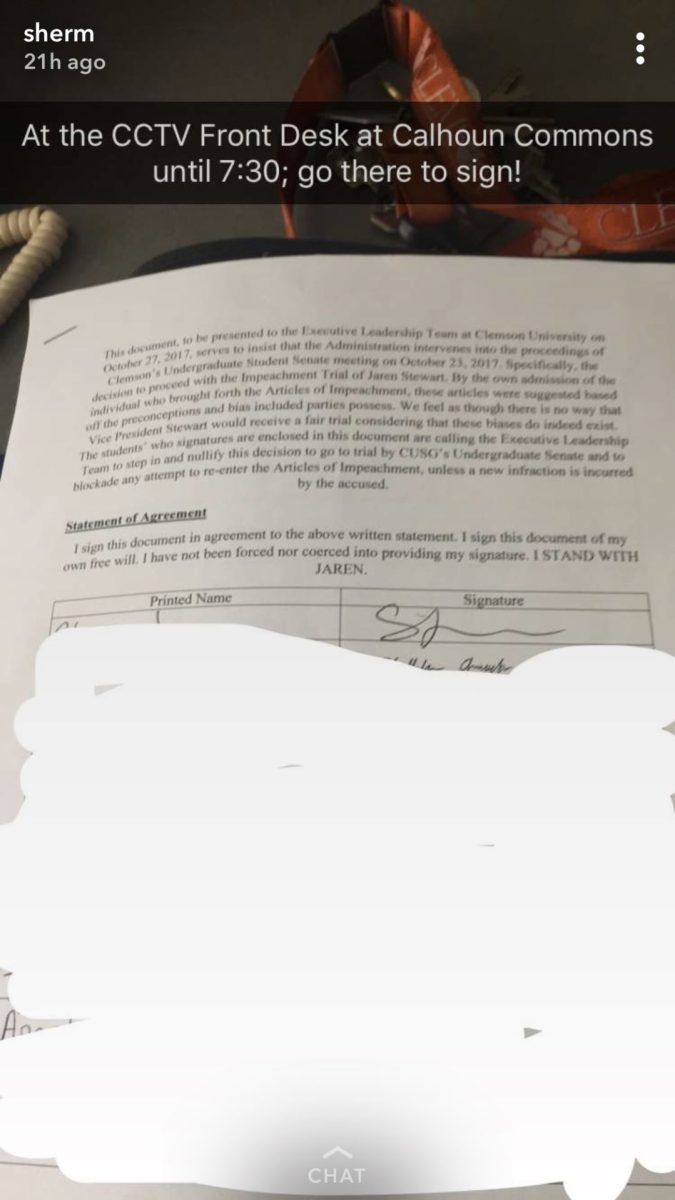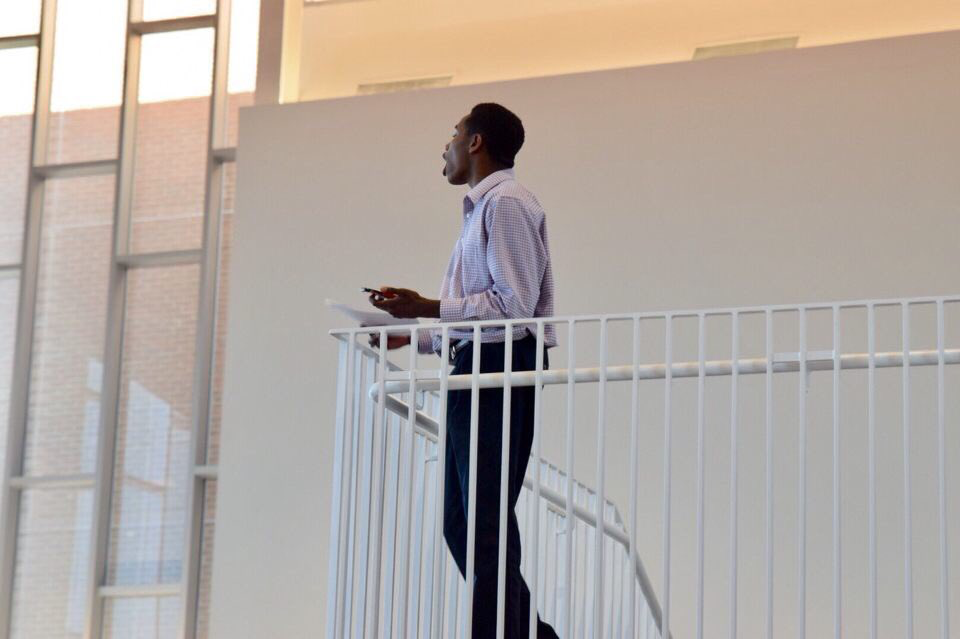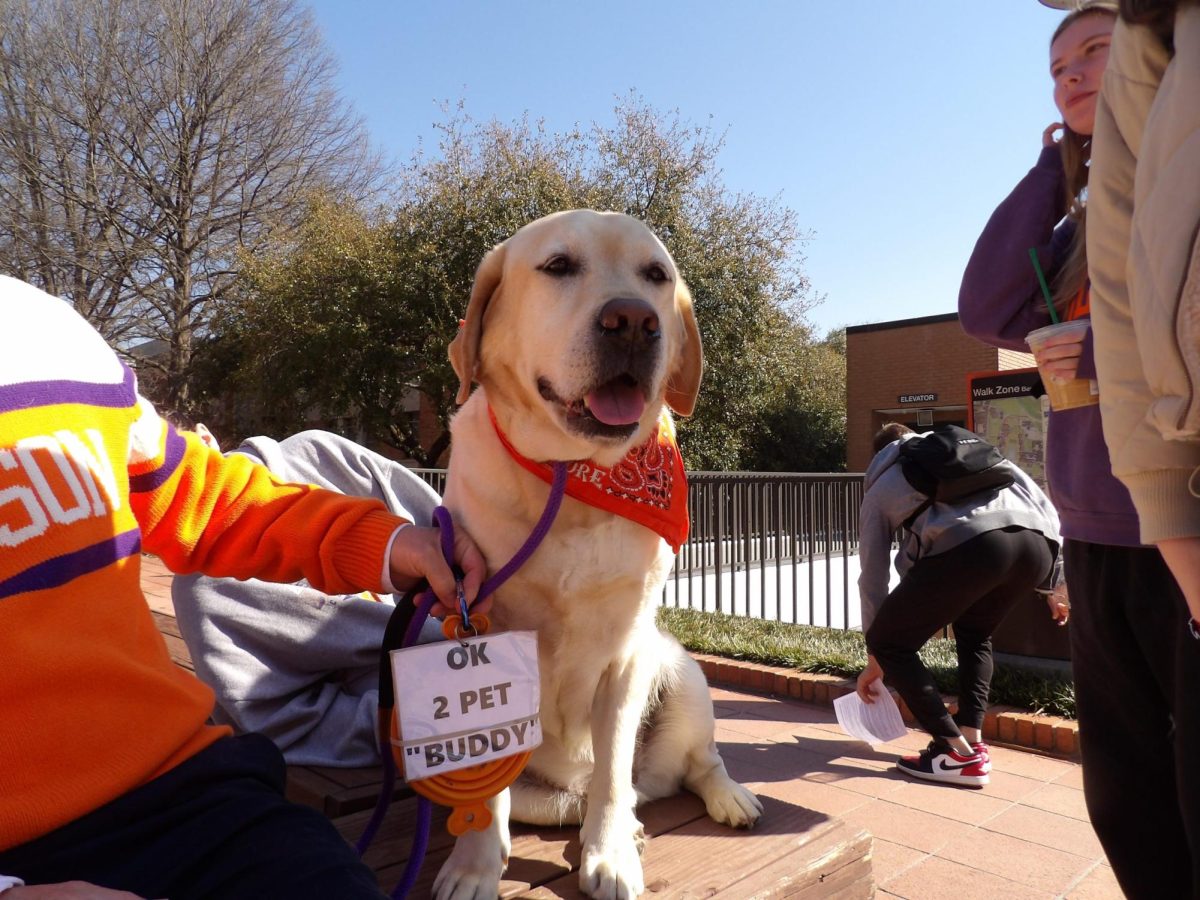Update (10/26/17 – 6:00 p.m.): The Tiger has updated this article to include the date of the impeachment trial.
Update (10/25/17 – 10:10 p.m.): The Tiger has updated this article to include Miller Hoffman’s articles of impeachment, as well as more information and student reactions.
Update (10/25/17 – 3:40 p.m.): The Tiger has updated this article to include comments from Leland Dunwoodie and Miller Hoffman, as well as more information and some student reactions.
Clemson Undergraduate Student Body Vice President Jaren Stewart will face an impeachment trial after a procedural error, along with an intense, three-hour senate debate.
In a 40-18 secret vote during Monday’s senate meeting, senators voted in favor of holding an impeachment trial for Vice President Stewart. The trial will be held on Monday, Nov. 6 at 7 p.m.
Senator Miller Hoffman filed the articles of impeachment, saying he believes Stewart is unfit to fulfill his duties in student government.
What are the grounds of impeachment?:
Hoffman brought up allegations made against Stewart in regards to his time as a resident assistant (RA) in April 2017.
Hoffman referenced the allegations made in a document that was published online by FITSNews on Oct. 3. The document appeared to detail allegations of misconduct against Stewart.
Clemson University spokesperson John Gouch was unable to confirm or deny the validity of the document.
Hoffman said that some of the allegations were verified by OCES and one of the complainants listed in the document is a current CUSG senator. Hoffman said that with the facts that he found, along with the allegations, that Stewart could be unfit for his job as CUSG VP.
Regarding the articles, Hoffman said that he has given the senate “all the information that I am aware of as of right now and legally allowed to delve into. This is incredibly significant as we have to come to a decision that is fair for the students here at Clemson.”
Hoffman also said during the meeting that his concerns regarding Stewart have nothing to do with race nor the pledge protests that Stewart has been under fire for. A few students in the gallery implied such at Monday’s meeting.
“Such a narrative is without evidence and completely untrue,” Hoffman said.
Hoffman also said that he was glad to find that people were interested in “taking this process to the level of seriousness that they are. I expected nothing less than due diligence.”
Senate debate:
Senator Stephen Moore objected to the motion to present articles of impeachment, but was overruled. Moore cited the absences of Stewart, Student Body President Killian McDonald and Attorney General Janay Crosland as reasons to not hear the articles. Moore said Crosland would typically oversee the impeachment process. Other senators expressed concern that the time spent in questioning and pro/con debate could have been yielded to Stewart, McDonald or Crosland so they could have asked Hoffman any appropriate questions.
Senator Jacob Livingston made a motion to go into executive session to discuss the charges brought forward by Hoffman. Executive session is exclusive to members of Senate, along with any special guests added in the motion. The motion was struck down.
The senators then went back and forth in a debate for more than two hours about whether and not to call for an impeachment trial. Senators debated the authenticity and legality of the document in question pertaining to Family Educational Rights and Privacy Act (FERPA).
Leaking the document is a FERPA violation for the university, not students or news outlets.
Senators also debated being able to be transparent with constituents and allowing Stewart the chance to defend himself in a forum.
Regarding the tense debate, CUSG Senate President Leland Dunwoodie said that “This term’s Senate has been very successful in making tangible change on campus. I hope that this trial, whatever the outcome, will allow Senate and CUSG to re-focus on making this change.”
He also expressed gratitude for the community, saying “Thank you to the many members of the Clemson community who attended Senate or watched the live-stream. Please feel free to reach out with any questions you may have. In addition, I’m very happy with Senate’s unanimous passage of a resolution in support of US Senator Lindsey Graham’s DREAM Act.”
How has the Clemson community reacted?:
The reaction from the student body, as well as the greater community, has been mixed.
Khayla Williams, a senior computer science major present at the meeting, expressed concern regarding the decision.
“I sat through a Senate meeting where half the people who voted to go to trial, were in favor of it not because they believed he deserved impeachment but simply because they wanted ‘closure’ to an already closed situation,” Williams said. “The university has systems in place to handle conduct issues regarding students. We have to trust that system. If OCES closed the issue, no one should be questioning their decision.”
Ian Anderson, a senior political science major, agreed, saying “There’s a massive disconnect that exists between CUSG and our students and we need more people like Jaren.”
A student-signed petition has also been passed along campus which, among other things, questions the motives of those in favor of going to trial. The petition asks administration to step in as “there is no way that Vice President Stewart would receive a fair trial considering that these biases do indeed exist.”
According to the provided statement on the document, the petition will be presented to university administration on Friday, Oct. 27.
“We aren’t sure how much power upper administration has over student government but they do need to be made aware of the situation,” Williams said. “They need to understand that the student body never said that they wanted the impeachment of Jaren Stewart.”
“The point of the petition — aside from showing support for Jaren and popular disdain for the impeachment — is to insist that a third party intervenes and (hopefully) forces Senate to realize the large mistake they’re making,” Sherman Jones, a senior computer science major, said.
Jones, a supporter of Stewart, held a demonstration in Core Dining Hall Wednesday Oct. 25.
“The demonstration was a means of doing two things,” Jones said. “[First, to] disseminating the facts of the situation in order to inform our peers of what’s going on and why and [second,] to promote our petition to get a third party involved to get Senate to stop the nonsense.”
Previous attempt to impeach Stewart:
This isn’t the first time Hoffman has brought forth articles of impeachment against Stewart.
During the Oct. 9 Senate meeting, Hoffman brought forward a motion to read articles of impeachment against Vice President Stewart, but it was struck down by the Senate.
However, it was soon discovered that a procedural mistake was made during that meeting and that the articles should have been read.
Dunwoodie said that there was an accidental reversal in the rules regarding the voting process in relation to objections.
“Where I went wrong is that a two-thirds vote is needed to sustain the objection,” Dunwoodie told The Tiger last week. “I thought it was that two-thirds is needed to overrule the objection … It was an honest mistake; I truly apologize.”
Because Dunwoodie admitted to the procedural error, the sustained objection was thrown out, and Hoffman was able to reintroduce the articles.
What happens next?:
According to the CUSG Constitution, Stewart’s impeachment trial “will be called no earlier than one week and no later than two weeks after the motion to impeach has been passed.”
The impeachment trial will be held in executive session with only senate members and Crosland allowed inside. Witnesses will be let in one at a time. Because the trial will be held in executive session, no one present in the room will be allowed to discuss with the public anything that happens within the trial other than the final verdict. At Monday’s meeting, Senator Patrick Gorospe said that anyone found in violation of this offense could be impeached as well.
During the trial, Hoffman and Stewart will have the opportunity to present their cases and call witnesses. Each side will have the opportunity to cross examine, and the Senate will have the opportunity to ask questions as well.
Following this, a period of pro and con debate will ensue. An immediate vote will then follow.
A two-thirds vote is needed to impeach Stewart and remove him from office.
If impeached, Stewart will have five business days to appeal to the CUSG Supreme Court.
If he does not appeal, or if the appeal fails, he will be removed from office. According to the CUSG Constitution, “The vacant office(s) shall be filled in the same manner in which they were originally filled or through currently defined and approved vacancy procedures.”
Stewart will also be ineligible to hold any future offices in CUSG if impeached.
Overall, Hoffman said that the trial will bring about the truth, as “a trial will help us further determine what is able to be said being that it will be coming from the witnesses. It is completely understood that allegations are allegations, but there are multiple parts to my argument rooted in undeniable facts.”
When asked, Williams wanted to give a few concerns she has with Senate.
“The actions you all are taking are not representative of the wishes of the student body. What you are doing is ruining Jaren’s life and chances at a prosperous future. Maybe the articles weren’t racially motivated, but can you guarantee that every senator will be impartial and non-bias? Can you guarantee that no one on Senate has racist motives? If you can’t, how can you possibly guarantee that Jaren will receive a fair trial?”
Jones said he has a desire to make his voice heard in the matter.
“Sherman Jones is doing everything in his power to make sure they understand that campus knows what’s really going on here,” he said. “The timeline and the so-called ‘evidence’ tell the story. This isn’t about Jaren’s competence as Vice President, so stop reacting so emotionally.”
This is a developing story. Please check back for updates.
Clemson student Sherman Jones stood in Core Dining Hall to hold a demonstration regarding the impending Stewart impeachment trial.









